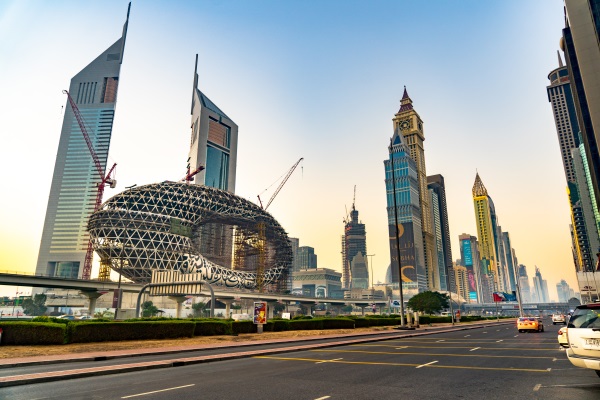Dispute resolution increasing in the Middle East as economies reform

Middle Eastern countries, particularly the oil-exporting countries, are in a phase of diversifying their economies away from natural resources and attracting more foreign investment. The region is attracting significant foreign investment in a number
of industries, including infrastructure and property. This in turn gives rise to high-value commercial cross-border disputes. For example, over the last four years the average value of global construction disputes in the Middle East/North Africa region
outstripped those in North America, the UK and Continental Europe.1
International arbitration is also on the rise. The number of arbitration institutions in the Middle East has grown and jurisdictions have enacted arbitration-friendly procedures. Consequently, there is “a greater degree of certainty and predictability for users and an increase in trust in the region’s ability to deliver world-class arbitration services”.2
All of this has resulted in the market for dispute resolution finance growing rapidly in the region. We are seeing an increase in funding enquiries regarding disputes relating to infrastructure and oil and gas projects, as well as the property and financial
services sectors. We expect to see more claims from insolvency practitioners as the market embraces the UAE’s relatively recent Insolvency Law (Federal Law No. 9 of 2016). Earlier this year a UAE Court made orders for the first time that allowed
a company to restructure its debts and resume trading.
The other significant trend we are seeing is a shift away from enquiries from the traditional recipient of dispute resolution finance – the claimant with a meritorious claim who is unable to fund its prosecution. A significant proportion of applicants
for dispute resolution finance are well-resourced companies with the financial strength to prosecute claims, but seek dispute resolution finance in order to manage the costs and risks or proceedings, and for the assistance that experienced funders
can provide in the management of their claims.
As civil law jurisdictions, countries in the Middle East have not been shackled with the historical prohibitions on dispute resolution finance of maintenance and champerty that the common law imposed. There are common law jurisdictions within the United
Arab Emirates (the Dubai International Financial Centre and the Abu Dhabi Global Markets). However, those jurisdictions have recognised the benefits and growth of dispute resolution finance and adopted procedures and regulations to permit funding
and to proactively manage some of the issues that can arise when a matter is funded.
Western lawyers working in the Middle East do need to be aware of the overlay of Sharia principles to the commercial landscape. The degree to which Sharia law affects commercial activity depends upon the jurisdiction in which the contract or dispute resolution
forum is located. For example, Saudi Arabia requires compliance with Sharia law as a matter of public policy. Many arbitral award recipients who have sought to have that award enforced in Saudi Arabia have failed to have the award recognised, either
because the form of the award, or its subject matter violates Sharia principles (for example, goods which Sharia law prohibits such as alcohol or pork products). A careful review of the proposed enforcement strategy is essential at the outset of a
matter to ensure that these types of issues are considered and addressed.
Although the Middle East presents some unique challenges, it is nevertheless an important and growing market for commercial disputes and dispute resolution finance.
Before joining IMF Bentham, Investment Manager Nathan Landis worked as a senior legal consultant in the dispute resolution and regulatory group of a global law firm, based in Dubai. He has acted on a wide variety of matters across almost all jurisdictions
in the Middle East and on matters in North Africa and South Asia. He also managed IMF Bentham’s first investment in the Middle East which resolved successfully.
- Is the Middle East more prolific in generating disputes? By Deborah Ruff, Julia Kalinina Belcher, and Charles Golsong, of Pillsbury Winthrop Shaw Pittman LLP, Global Construction Review 11 October 2018.
- The Middle Eastern and African Arbitration Review: Middle East, Global Arbitration Review 11 May 2018.